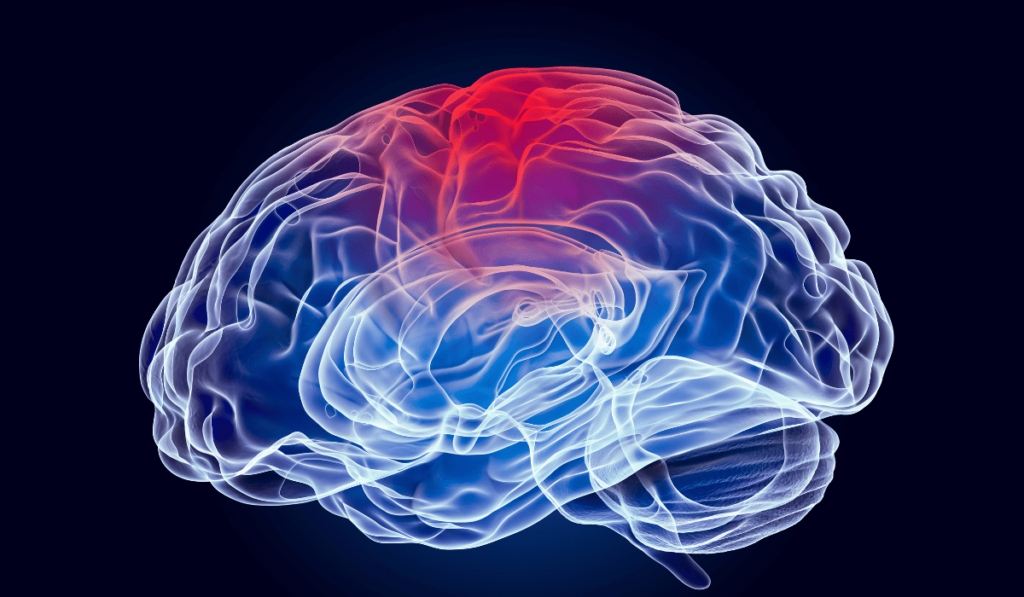Most men may experience changes in their sexual health as they age and go through andropause. Understanding what to expect during this period is crucial for maintaining a healthy and fulfilling sex life. In this article, we will explore the common issues men may face, positive ways to address them, and important tips for navigating sexual health during andropause. Note, your well-being is a priority, and knowledge is the first step towards wellness.
Key Takeaways:
- Physical changes: Andropause can lead to a decrease in testosterone levels, which can cause symptoms such as low libido, erectile dysfunction, and decreased semen volume.
- Emotional impact: Changes in sexual health during andropause can also affect emotional well-being, leading to feelings of depression, anxiety, and decreased self-esteem.
- Seeking help: It is important for men experiencing sexual health issues during andropause to seek professional help, as there are treatments available to help manage symptoms and improve overall quality of life.
What is Andropause?
Defining Andropause
Any man who is approaching middle age or beyond should be aware of the term “andropause”. This phase, also known as male menopause, refers to the decline in the production of testosterone in aging men. Unlike menopause in women, which is marked by a clear-cut decline in hormone production, andropause occurs more gradually and may not always result in complete cessation of testosterone production.
Symptoms and Signs
The symptoms and signs of andropause can vary from person to person. While some men may experience a noticeable decrease in energy levels, libido, and muscle mass, others may struggle with mood swings, fatigue, and erectile dysfunction. It’s crucial to pay attention to any changes in your body and mood as you age, as these could be indicative of hormonal imbalance associated with andropause.
Andropause is a natural stage of life for men, but it can have a significant impact on your physical and emotional well-being if left untreated. If you notice any concerning symptoms or changes in your body, it’s important to consult with a healthcare provider who can help you navigate this transition with appropriate support and treatment options.
The Impact of Andropause on Sexual Health
Decreased Libido
If you have noticed a dip in your sexual desire, you are not alone. Health changes during andropause can significantly impact your libido. The decline in testosterone levels can lead to a reduced interest in sexual activity. Addressing this issue with your healthcare provider is imperative to explore treatment options.
Erectile Dysfunction
Libido isn’t the only aspect of sexual health that can be affected by andropause. Erectile dysfunction can also become more prevalent. This condition can be frustrating and may lead to feelings of inadequacy or embarrassment. It’s important to remember that erectile dysfunction is a common issue, and there are various treatment options available to help you maintain a healthy sex life.
Changes in Ejaculation
On top of decreased libido and erectile dysfunction, you may also experience changes in ejaculation patterns during andropause. This can include a decrease in semen volume or changes in the force of ejaculation. These physical changes are a normal part of aging and can be managed with the help of your healthcare provider.
Hormonal Changes During Andropause
Noticing changes in your body as you age is a natural part of life. One significant aspect of the aging process for men is andropause, a period often referred to as “male menopause.” During andropause, you may experience fluctuations in your hormone levels, particularly testosterone.
Testosterone Levels
An imperative hormone for male sexual health and overall well-being, testosterone production tends to decrease gradually as men age, typically beginning in your late 30s or early 40s. Low testosterone levels can lead to symptoms such as decreased libido, erectile dysfunction, fatigue, and mood changes.
Estrogen and Progesterone Imbalance
Another aspect of hormonal changes during andropause is the imbalance between estrogen and progesterone levels in men. While typically considered female hormones, men also produce small amounts of estrogen and progesterone. However, during andropause, these levels may become imbalanced, affecting your sexual health and overall hormonal functioning.
For instance, an increase in estrogen levels and a decrease in progesterone can contribute to weight gain, loss of muscle mass, and even potential development of breast tissue (gynecomastia) in men.
The Role of Hormone Replacement Therapy
Levels of testosterone, estrogen, and progesterone play a crucial role in maintaining your sexual health and overall well-being. Hormone replacement therapy (HRT) is a treatment option that can help restore hormonal balance and alleviate symptoms of andropause.
Another benefit of hormone replacement therapy is the potential to improve libido, energy levels, muscle mass, and mood, enhancing your overall quality of life during andropause.
Physical Changes Affecting Sexual Health
Weight Gain and Body Composition
After reaching andropause, it is common for men to experience changes in weight and body composition. Any increase in body fat, particularly around the abdomen, can affect your confidence and self-esteem, impacting your sexual health. This change can also lead to a decrease in testosterone levels, which can further exacerbate issues related to sexual function.
Fatigue and Low Energy
One common physical change you may notice during andropause is increased fatigue and low energy levels. This can make it difficult to engage in sexual activity or may reduce your interest in sex altogether. One of the key factors contributing to fatigue during andropause is the decline in testosterone levels, which play a crucial role in maintaining energy levels and overall vitality.
To combat fatigue and low energy levels during andropause, it is important to prioritize a healthy lifestyle. This includes regular exercise, a balanced diet, and adequate rest to help regulate hormone levels and boost energy levels.
Sleep Disturbances
To complicate matters further, you may also experience sleep disturbances during andropause. Disturbances in sleep patterns can lead to fatigue, irritability, and decreased libido, all of which can impact your sexual health. Poor sleep quality can disrupt hormone regulation, including testosterone production, further exacerbating these issues.
This trifecta of weight gain, fatigue, and sleep disturbances can significantly impact your sexual health during andropause. It is crucial to address these physical changes through lifestyle modifications, hormone therapy if necessary, and open communication with your healthcare provider to ensure a healthy and fulfilling sex life as you age.
Emotional and Psychological Factors
Keep emotional and psychological factors in mind when navigating sexual health during andropause. It’s normal to experience a range of emotions during this time, and it’s important to address them to maintain overall well-being.
Depression and Anxiety
To address depression and anxiety during andropause, it’s crucial to seek support from a healthcare professional. These mental health issues can significantly impact your sexual health and overall quality of life. Be mindful of, it’s okay to ask for help.
Relationship Strains
An increased focus on communication and understanding can help navigate relationship strains during andropause. It’s important to remember that changes in your sexual health can affect you and your partner. Open discussions and seeking support together can strengthen your relationship.
This is a challenging time for both individuals, and empathy and patience are key in overcoming relationship strains that may arise.
Self-Esteem and Confidence
On your journey through andropause, it’s common to experience fluctuations in self-esteem and confidence. Be mindful of, aging is a natural process, and you are more than your sexual health. Engaging in activities that bring you joy and practicing self-care can help boost self-esteem and confidence.
A positive mindset and self-compassion are vital in navigating these changes and maintaining a healthy sense of self-worth.
Managing Sexual Health During Andropause
Lifestyle Changes: Diet and Exercise
To effectively manage your sexual health during andropause, consider making lifestyle changes such as focusing on a healthy diet and incorporating regular exercise into your routine. Consuming a diet rich in fruits, vegetables, lean proteins, and whole grains can help support overall health and potentially improve sexual function. Additionally, engaging in regular physical activity not only helps maintain a healthy weight but also promotes blood flow, which is necessary for sexual arousal.
Stress Reduction Techniques
To combat the negative effects of stress on your sexual health during andropause, it’s necessary to incorporate stress reduction techniques into your daily routine. Chronic stress can impact hormone levels and contribute to sexual difficulties, so finding ways to manage stress is crucial. Practices such as mindfulness meditation, deep breathing exercises, yoga, and spending time in nature can all help reduce stress levels and improve overall well-being.
Techniques such as progressive muscle relaxation or guided imagery can also be effective in reducing stress and promoting relaxation, ultimately benefiting your sexual health during andropause.
Communication and Intimacy
Changes in sexual function and desire during andropause can impact your relationship with your partner. Communicating openly and honestly about these changes is necessary to maintaining intimacy and a strong connection. Expressing your needs, concerns, and desires can help ensure that both you and your partner feel understood and supported.
Intimacy extends beyond physical intimacy and includes emotional connection and communication. Building emotional intimacy through activities such as spending quality time together, talking openly, and showing appreciation for one another can help strengthen your bond and enhance your overall relationship.
Conclusion
Presently, you have a better understanding of what to expect regarding sexual health during andropause. It is important to remember that changes in libido, erectile function, and overall sexual performance are normal during this stage of life. By staying informed and seeking support from healthcare professionals, you can navigate these changes with confidence and prioritize your sexual well-being.
Remember to communicate openly with your partner about any concerns or changes you may be experiencing. Additionally, adopting a healthy lifestyle that includes regular exercise, a balanced diet, and stress management techniques can also help support your sexual health during andropause. Embracing this phase of life as an opportunity for growth and self-care can lead to a fulfilling and satisfying sexual experience well into your later years.
FAQ
Q: What is andropause?
A: Andropause, also known as male menopause, is a term used to describe a set of age-related symptoms in men due to a decline in testosterone levels.
Q: What are the common symptoms of andropause related to sexual health?
A: Common symptoms related to sexual health during andropause include reduced libido, erectile dysfunction, decreased sexual satisfaction, and decreased morning erections.
Q: How does andropause affect sexual performance?
A: Andropause can affect sexual performance by causing a decrease in testosterone levels, which can lead to reduced libido, erectile dysfunction, and difficulties in achieving or maintaining an erection.
Q: Are there treatments available for sexual health issues during andropause?
A: Yes, there are treatments available for sexual health issues during andropause, including hormone replacement therapy, medications for erectile dysfunction, counseling, and lifestyle changes.
Q: Can lifestyle changes help improve sexual health during andropause?
A: Yes, lifestyle changes such as regular exercise, a healthy diet, managing stress, getting enough sleep, and avoiding smoking and excessive alcohol consumption can help improve sexual health during andropause.
Q: When should a man seek medical help for sexual health issues during andropause?
A: A man should seek medical help for sexual health issues during andropause if they are experiencing persistent or severe symptoms such as erectile dysfunction, decreased libido, or emotional distress related to sexual performance.
Q: How can communication help improve sexual health during andropause?
A: Open communication with a partner about sexual health issues during andropause can help reduce stress, improve intimacy, and lead to finding solutions together such as trying new techniques or seeking professional help.



